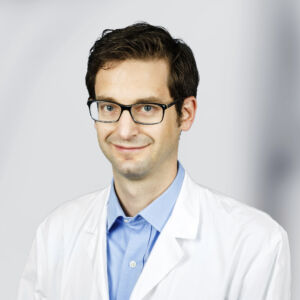Drug therapy for pulmonary fibrosis
The therapy differs for different types of pulmonary fibrosis. Cortisone preparations and immunosuppressants, which inhibit the human immune system, are used in some subtypes of pulmonary fibrosis to allow inflammatory processes to subside. For patients with idiopathic pulmonary fibrosis, antifibrotic drugs (nintedanib and pirfenidone) are available that can slow down the progression of the disease.
Oxygen therapy and lung transplantation
People with pulmonary fibrosis have a lack of oxygen either only during exercise or at rest when the disease is advanced and therefore require oxygen therapy. You will usually receive oxygen via a nasal tube for at least 16 hours a day. Long-term oxygen therapy improves physical performance.
A lung transplant is the last option when other therapies are no longer helpful in restoring performance and quality of life and prolonging life. Although success rates continue to improve, lung transplantation is still associated with risks: One year after the operation, 80 percent of transplanted lungs are still functioning and five years after the operation around 55 percent are still functioning. Either one or both lungs are transplanted. Contraindications are severe, untreatable, other diseases, e.g. of the heart or kidneys and also malignant tumors that were cured less than five years ago, as well as the abuse of drugs, alcohol or nicotine.
Hope for the future
New research in the field of idiopathic pulmonary fibrosis offers hope for the future. Disease mechanisms are decoded at the molecular level, enabling targeted drug therapy. People with pulmonary fibrosis have changes in the fibroblasts. These are cells that under normal circumstances form the supporting tissue of the alveoli. They are regulated by certain signaling pathways that are defective in pulmonary fibrosis, causing the lung tissue to remodel. Researchers are trying to use the functions of these signaling pathways for the development of biomarkers and new drugs.
Pulmonary rehabilitation
Pulmonary rehabilitation is a modern form of treatment for people with pulmonary fibrosis. In this therapy, we work together with medical specialists, physiotherapeutic specialists, nutritionists, psychologists, social workers, stop-smoking advisors and nursing staff. The aim is to improve the performance, work capacity and quality of life of people who are ill. This is achieved by
- controlled physical exercises,
- Training courses,
- Relaxation exercises and
- other measures to make everyday life easier.
Specialists at the USZ
Rare lung diseases, such as pulmonary fibrosis, are seen and treated more frequently here than in the practice or at smaller hospitals. It also has senior physicians who have specialized in this field and always take into account the latest scientific findings in diagnostics and treatment. Newer therapies often only become available at university hospitals, so that patients can voluntarily take part in studies where these drugs are used. In addition, access to combined therapy approaches or even lung transplantation is made easier. In Switzerland, lung transplantation is only performed in Zurich and at one other center in French-speaking Switzerland.
